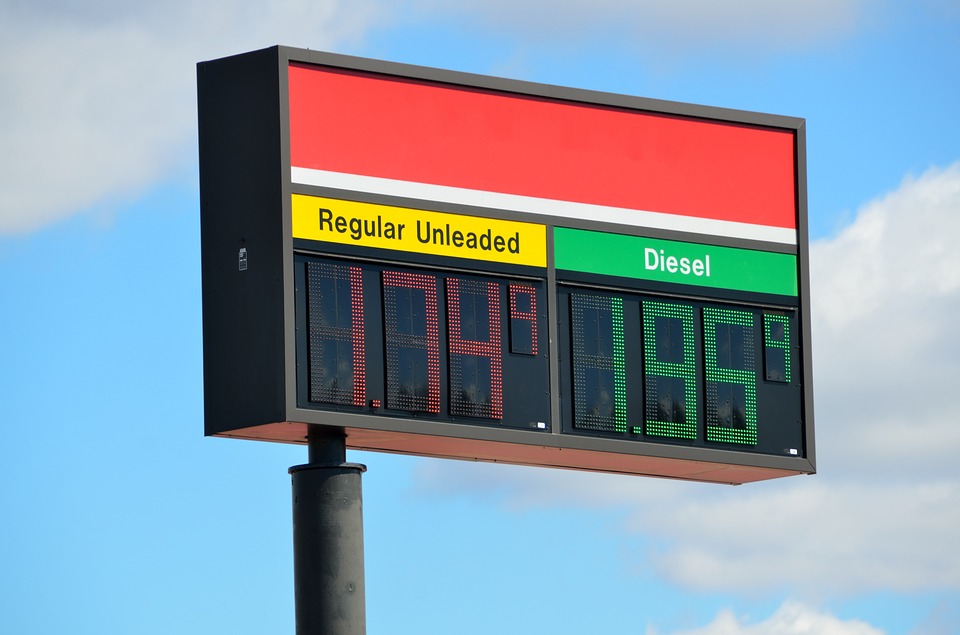Producers of oil and gas, operators of pipelines and refineries in the United Arab Emirates, Kuwait, Oman, Saudi Arabia, Quatar, Bahrain borrowed nearly $ 6 billion in bonds and loans in the current. It was the weakest start in four years, Bloomberg’s data showed.
To compare, American energy companies came up with a record $ 74.3 billion in debt since early 2018.
The increase in oil prices by 17% this year brought to the Gulf Cooperation Council (GCC) more funds to finance operations and expand production. The reduction in borrowing volumes also resulted from a sudden reversal of investors' appetite for risk in emerging markets, which increased the cost of borrowing for issuers.
The largest borrowing in the GCC this year was a loan of $ 3 billion for Abu Dhabi National Oil Co. (ADNOC).
Producers of oil and gas producers in the UAE, Kuwait and Saudi Arabia are going to fork out around $ 600 billion on projects related to energy in the following ten years, governments of these countries said. Some of these projects will be supported from debt; this is particularly true for petrochemical plants and oil refineries. However, borrowings are likely to be restrained in 2018, as some of the projects will not start within a few years, said Robin Mills, general director of Qamar Energy consulting company.
Last year, energy companies in the Arab countries of the Persian Gulf borrowed a record $ 28.7 billion from bonds and syndicated loans. The previous maximum was set two years earlier.
State-owned companies in the Middle East have been relying on borrowed funds from 2014, as their revenues fell following oil prices.
OPEC Secretary General Mohammed Barkindo said in late May that it is necessary to increase investment in the oil industry in order to cope with the future growth in consumption and to avoid supply shortages. According to him, the pace of investment has increased this year, but there were not enough reliable investments in long-term projects, which are "the basis of the future of this industry."
Barkindo noted that investments in the oil sector until 2040 should be about $ 10.5 trillion to meet the future demand for oil, which is expected to exceed 111 million barrels per day.
source: bloomberg.com
To compare, American energy companies came up with a record $ 74.3 billion in debt since early 2018.
The increase in oil prices by 17% this year brought to the Gulf Cooperation Council (GCC) more funds to finance operations and expand production. The reduction in borrowing volumes also resulted from a sudden reversal of investors' appetite for risk in emerging markets, which increased the cost of borrowing for issuers.
The largest borrowing in the GCC this year was a loan of $ 3 billion for Abu Dhabi National Oil Co. (ADNOC).
Producers of oil and gas producers in the UAE, Kuwait and Saudi Arabia are going to fork out around $ 600 billion on projects related to energy in the following ten years, governments of these countries said. Some of these projects will be supported from debt; this is particularly true for petrochemical plants and oil refineries. However, borrowings are likely to be restrained in 2018, as some of the projects will not start within a few years, said Robin Mills, general director of Qamar Energy consulting company.
Last year, energy companies in the Arab countries of the Persian Gulf borrowed a record $ 28.7 billion from bonds and syndicated loans. The previous maximum was set two years earlier.
State-owned companies in the Middle East have been relying on borrowed funds from 2014, as their revenues fell following oil prices.
OPEC Secretary General Mohammed Barkindo said in late May that it is necessary to increase investment in the oil industry in order to cope with the future growth in consumption and to avoid supply shortages. According to him, the pace of investment has increased this year, but there were not enough reliable investments in long-term projects, which are "the basis of the future of this industry."
Barkindo noted that investments in the oil sector until 2040 should be about $ 10.5 trillion to meet the future demand for oil, which is expected to exceed 111 million barrels per day.
source: bloomberg.com



















